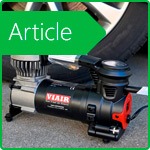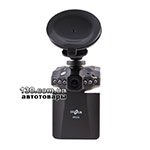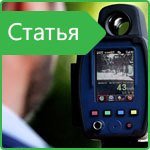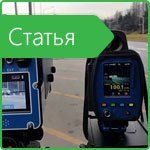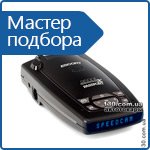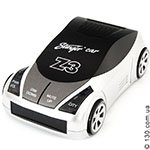How to choose and buy a radar detector
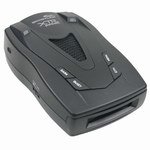 Automotive radar detectors (or how often they are called antiradars) occupy a rather significant place in the arsenal of means for warning about the presence of traffic police posts on the driver’s path. Today, the traffic police are equipped not only with a striped rod and whistle, but also with devices for measuring speed: radar, VIZIRA. How to deal with this ordinary driver?
Automotive radar detectors (or how often they are called antiradars) occupy a rather significant place in the arsenal of means for warning about the presence of traffic police posts on the driver’s path. Today, the traffic police are equipped not only with a striped rod and whistle, but also with devices for measuring speed: radar, VIZIRA. How to deal with this ordinary driver?
Let's first deal with the terminology
A radar detector is a receiver of signals that signals that within the tuned sensitivity there are signals of the ranges for which it is tuned. In fact, the radar detector is a passive receiver that does not drown out certain signals, but warns about their appearance on the way. That is why radar detectors, in contrast to radar detectors, are not prohibited by law.
Anti-radars have a different principle of operation-they suppress signals in the ranges to which it is tuned. As soon as this device detects a signal in one of the ranges, it begins to emit noise and interference. These devices are prohibited for use in most countries-if you find such a device, then be prepared for a fine of several non-taxable minimums and confiscation of anti-radar.
Very often, car owners do not quite correctly call those and other devices in general-“anti-radar”, but all those devices that are commercially available are actually radar detectors. Although, if you look at it from the side “forewarned is forearmed,” then radar detectors can also be called the term anti-radar, as it is commonly called by the people.
Today in the global market there are many models of radar detectors, which occupy leading positions in all indicators. First of all, these are Beltronics, Escort, Stinger, Crunch and Whistler brands. The brand names of these anti-radar detectors have become common names and are the most popular due to the optimal ratio of price and quality.
Most radar detectors are configured to define X, K, and Ka bands, each of which has its own frequency, respectively.
The X-band is the oldest and the main frequency of 10525 MHz. Initially, it was used on location equipment, and it was on its basis that such popular radars as the Falcon, Barrier, and the like were created. Today, this range is rather outdated and has given way to more modernized and high-speed instruments that operate at a different carrier frequency. But at the same time, most radar detectors of brands such as Beltronics, Stinger, Whistler support the X-band.
A newer range of radar detectors is K band with a carrier frequency of 24 150 MHz. If you want to buy a radar detector with a greater detection range and a wider bandwidth (100 MHz), then you should choose a model that supports this range. Today, this frequency is basic for the vast majority of radar detectors in the world.
Ka is the latest range, which is currently considered the most promising due to the high accuracy of determination in the shortest possible time. The detection range in this range varies around 1.5 km. This range has the widest bandwidth-1300 MHz. Very often in the characteristics of radar detectors, you may find the SuperWide tag-this means that the device supports detection of signals in the Ka band. Full licensing of this range is expected in the next two to three years.
There are also laser speed gauges, but because of the high cost of this equipment, they are not very common with us. But many radar detectors available on the market already know how to detect laser radars.
The basis of any radar detector is a signal processing unit. It is in it that data is processed that comes from sensors and antennas, signal processing using algorithms, error detection and processing of additional functions.
Today you can buy a radar detector (or radar detector, if you prefer) with these types of signal processing:
- analog processing;
- hybrid processing (digital-analog);
- digital processing.
Radar detectors with analog signal processing are slowly becoming obsolete, giving way to newer technologies, because the disadvantages of these radar detectors are obvious-they have a rather low speed and a significant component of false interference.
The most common radar detectors today are devices with hybrid signal processing. These are usually radar detectors from brands like Beltronics, Escort, Crunch and Whistler. They are characterized by high processing speed and low proportion of false signals.
The most advanced signal processing, of course, is digital. It is based on a multi-computer complex inside a radar detector, which includes a microprocessor that provides ultra-high processing speed, the minimum number of false alarms, ultra-high distance for determining signals and parallel processing of incoming signals.
Price specifications
Before you buy a radar detector, decide how much you want to spend on it. There are three main price categories of these devices.
Budget Class
Today, the device is ruled here by a device, the cost of which does not exceed $ 150. The best devices in this price range are Crunch (Korean-made) and Whistler (American brand) radar detectors, in particular, the new GT series. This class of devices is limited to the use of fairly inexpensive technologies, which in turn affects the functionality of these devices and the reliability of their work.
Middle Class
The cost of these devices varies in the range of 200-500 dollars. In this price category only known brands are represented-Beltronics, Escort, Stinger. These are the oldest American manufacturers that have proven themselves for a long time on the market of radar detectors and have gained popular popularity for an optimal price-quality ratio.
The most popular in this segment are Beltronics and Stinger anti-radars.
Top Class
If you want to buy an elite class radar detector that would be close to the limit of radar detectors as such, then you should pay attention to the three "whales" in this price category-Escort, Beltronics, Valentine One.
In this class, it is worth noting the Beltronics brand, and in particular the component radar detector Beltronics StiR Plus is the leading model in terms of signal processing speed, which perfectly recognizes the European Ku band. This radar detector is different in that it uses almost all new data processing technologies, which, in turn, ensures the speed of the device. Also, it is worth noting the presence of a GPS receiver in this model, which makes this device the absolute leader in functionality among all radar detectors.
In the online store "130" you can antiradar buy in Kiev, Kharkov, Odessa with delivery in Ukraine any price categories according to your needs. Our experts will help you choose and buy a radar detector, which will alert you in time about the speed control on your way and will become a reliable informant satellite on your trips.
See video reviews of radar detectors
Materials on the topic

Stay tuned for updates!
Subscribe to our Telegram channel and be the first to receive useful materials.
Subscribe















